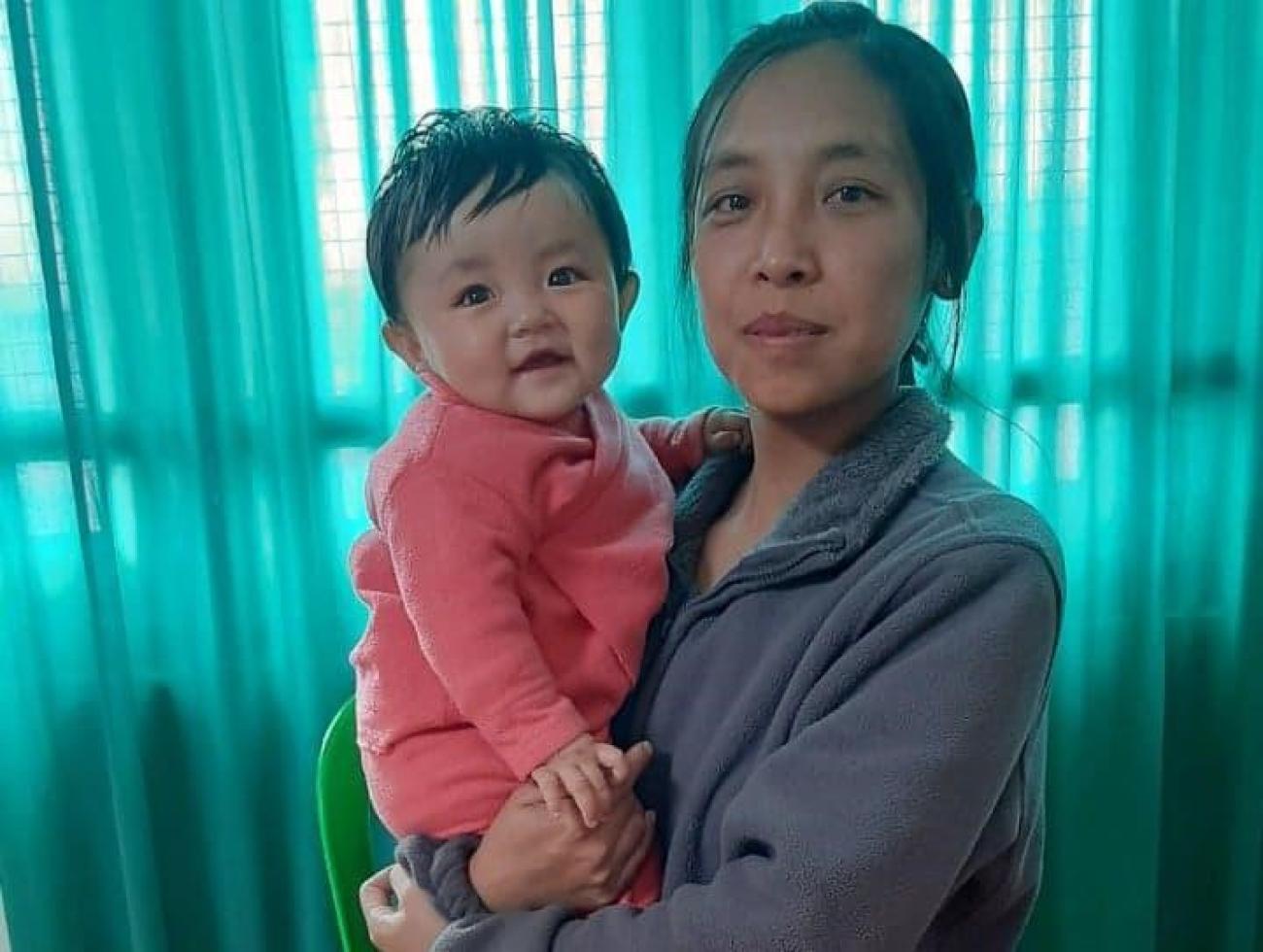Protecting the baby; feeding the family

COVID-19 response
Ye Mon
- When Myanmar’s first case of COVID-19 was detected in the remote village of Chin State, anxiety quickly spread among the residents.
In Myanmar eligible pregnant women and mothers of children under the age of two receive a monthly unconditional cash transfer during pregnancy and through the child’s first two years of life (first 1,000 days) through the Maternal and Child Cash Transfer programme (MCCT). The transfer of 10,000 - 15,000 MMK Myanmar kyats (about US$6-10) per month was designed to ensure that women are able to afford the purchase of nutritious foods and access antenatal and post-natal care. UNICEF is among agencies providing technical advice.
In June, the UNOPS-managed Livelihoods and Food Security Fund (LIFT) worked together with the Myanmar Government and HelpAge International to deliver US$9 million (approx. MMK12.6 billion) in social protection payments during the COVID-19 pandemic.
More than 420,000 pregnant women, mothers and the elderly have received additional cash support to help them and their families during the pandemic. This will help ease the indirect impact on nearly 2 million people across Myanmar.
Ma Man Huai Kim’s family told their story to UNICEF which explains why the financial support is critical in Myanmar.
When Myanmar’s first case of COVID-19 was detected in the remote village of Keptel, in Tedim Township of Chin State, anxiety quickly spread among the residents of Tedim and the surrounding areas.
Ma Man Huai Kim’s family is among many very worried about their current survival and the future.
Since Man Huai Kim, 29, left work from a mining business to have her first baby, she has been most concerned about her family’s livelihood, food security and the health of her little daughter, now seven months old. Ma Man Huai Kim’s husband drives a truck for his family’s mining business.
“My husband’s parents give us rice and cooking oil because my husband drives their truck. He doesn’t want to ask his parents for money,” explains Man Huai Kim.
Fortunately, Ma Man Huai Kim brings home 45,000 Myanmar kyats (approx. US$30) every three months from the Government’s Social Welfare Department Mother and Child Cash Transfer (MCCT) programme which started in 2009 and provides financial aid to pregnant women and women with children under two years of age.
"If I had not received the money from the MCCT programme, I don't know what would have happen to us. The last payment was late due to the pandemic, the wait was hard for me," Man Huai Kim reveals.
The young mother uses the MCCT money to buy necessities for her child including complementary food and good quality infant formula milk powder as supplement. She is grateful and says the cash support helps ease her anxiety, a bit.
Sometimes Man Huai Kim finds she has to use the cash payment meant for her child to pay for other family living expenses. There is not always enough money to buy a small can of milk powder, which costs 16,000 MMK (approx. US$11), so Man Huai Kim feeds the baby boiled roasted rice powder. The adults eat vegetables with no chance to add meat to their meals, as it’s just too expensive, since the prices have gone up since the onset of COVID-19.
“I had to buy medicine for my baby on credit and then paid off that debt when the cash support came in. There was certainly no chance to buy any food supplies and groceries in advance like other people preparing for the pandemic lockdown,” says Man Huai Kim.
Chin State has significant challenges with transportation and shipping of products from other parts of the country due to its remoteness. During the COVID-19 lockdown in Tedim and Kalay, only trucks with government approval letters can only travel. This made life much more difficult for the families like Man Huai Kim’s who depend on local food products, which are normally cheaper than the imported products. Few fresh produce stalls are still operating, and most grocery stores are more often closed than open.
The pop-in visits from relatives and friends also add to Man Huai Kim’s concerns.
“Our parents and relatives live in another ward, away from here. So, when they come to visit, I feel bad telling them they can’t hold the baby or stay near her. So, I let them hold her. I do, however, tell them to wash their hands before touching the baby,” says Man Huai Kim.
Man Huai Kim and her family would like to take their children to church since their births. During lockdown due to COVID-19, they have not been allowed to visit their local Baptist Church. However, churches have been broadcasting bible teachings through loudspeakers, a service that villagers say is convenient and appreciated, but not the same as worshipping in person. A Sunday schoolteacher herself, Man Huai Kim, is already planning to give her child bible teachings at home.
“I am very worried for my child’s future. There is great uncertainty. We don’t know when this fear is going to end. I really hope it all ends soon,” says Man Huai Kim wishfully.


